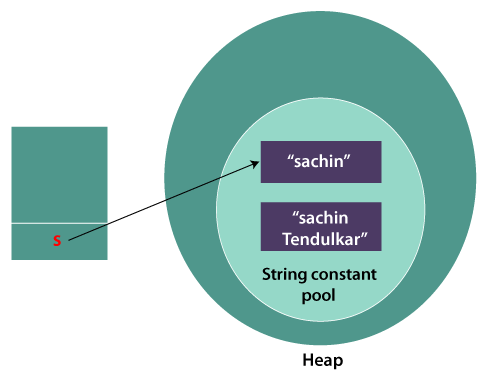Why Are Strings Immutable in Java? Secret Reasons and Benefits Clarified
Why Are Strings Immutable in Java? Secret Reasons and Benefits Clarified
Blog Article
Unalterable Strings: A Secret Component in Ensuring Data Consistency and Dependability
In the world of information monitoring, the significance of unalterable strings can not be overstated. The idea of unalterable strings transcends simple technicality; it is a linchpin in the complicated web of data governance.
The Concept of Immutable Strings
Immutable strings, a basic principle in programming, describe strings that can not be customized as soon as they are developed. Basically, when a string value is assigned, any type of procedure that shows up to customize the string really develops a brand-new string. This immutability makes certain information consistency and integrity in applications, as it protects against unexpected modifications to the original information.
Advantages in Information Uniformity

Data uniformity is crucial in various facets of software advancement, including database management, multi-threaded atmospheres, and distributed systems (Why are strings immutable in Java?). Unalterable strings add considerably to achieving this uniformity by avoiding information corruption as a result of simultaneous access. In circumstances where numerous processes or threads connect with the exact same data at the same time, immutable strings work as a secure versus race conditions and synchronization problems
Additionally, the immutability of strings simplifies debugging and screening processes. With unalterable strings, designers can trust that as soon as a string is set, it will certainly remain unmodified, making it much easier to trace the resource of errors and making certain that test cases generate constant results. This integrity in data managing ultimately brings about much more steady and durable applications.

Applying Unalterable Strings
Making sure the immutability of strings requires a thoughtful approach to their execution in software application advancement. One vital method is to develop string classes in a manner that stops modifications as soon as a string object is developed. By making strings immutable, developers can enhance information consistency and dependability in their applications.
To carry out unalterable strings efficiently, programmers ought to prefer developing new string things rather than customizing existing ones. This practice makes sure that once a string is appointed a worth, it can not be changed. In addition, any operation that appears to customize the string should produce a brand-new string with the wanted changes rather than changing the initial.
Furthermore, using unalterable strings can streamline concurrency administration in multi-threaded environments. Considering that unalterable strings can not be changed after production, they can be safely shared among multiple strings without the threat of data corruption.
Function in Dependability Assurance
In software program advancement, the usage of immutable strings plays an important duty in guaranteeing the integrity of information operations. Unalterable strings, as soon as developed, can not be changed, guaranteeing that the information they stand for stays constant throughout the application's implementation. This immutability building click to read gives a degree of assurance that the data being refined will not be accidentally altered, leading to unanticipated results or errors in the system.
By including immutable strings right into software program layout, designers can boost the integrity of their applications by minimizing the threats linked with mutable information - Why are strings immutable in Java?. Unalterable strings help in protecting against data corruption or unplanned adjustments, which can be particularly crucial when handling delicate details or when information integrity is extremely important
In addition, the use of unalterable strings streamlines concurrent handling, as numerous strings can securely gain access to and share string data without the risk of one thread altering the web content while another is reading it. This facet contributes substantially to the general integrity of the software application system, making sure predictable and consistent behavior in information managing procedures.
Applications and System Integration
The seamless combination of immutable strings right into different applications and systems is pivotal for making certain durable information consistency and reliability across diverse technical environments - Why are strings immutable in Java?. Unalterable strings play an important duty in enhancing the integrity of data exchanges and interactions within complicated software application communities. By including unalterable strings into applications, developers can minimize the risks linked with data meddling, unapproved alterations, and unintentional alterations, consequently strengthening the total security position of the system
Immutable strings can improve interoperability between disparate systems by supplying a standardized format for information representation, allowing a lot more efficient data handling and exchange methods throughout interconnected systems. By adopting unalterable strings in applications and system integration processes, companies can fortify their data facilities and support the dependability and uniformity of their information possessions.
Final Thought
To conclude, immutable strings play a crucial role in maintaining data consistency and integrity in various applications and system integrations. By making sure that strings can not be altered as soon as created, the stability of information is protected, minimizing the danger of mistakes and incongruities. Implementing unalterable strings can considerably enhance the dependability of systems, ultimately causing more precise and dependable information processing.

Report this page